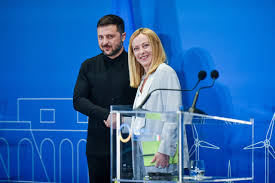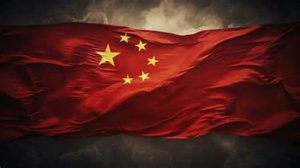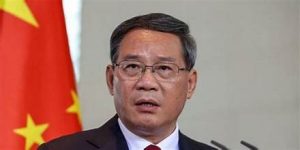Italy halts new US arms purchases for Ukraine (for now)

Rome: The Meloni government, according to sources cited by two newspaper, Repubblica and Stampa, would not be moving forward with new procurement of U.S.-made missiles, fighter jets, or other military systems for Ukraine. Rome would instead continue to provide logistical, financial, and political support within the NATO framework.
Decoding the news. Italy is reportedly opting out, for now, of new U.S. arms procurement initiatives for Ukraine—a move not yet officially confirmed.
The decision could reflect both domestic political caution and fiscal restraint, and comes amid rising tensions between the United States and the European Union over the military burden-sharing and broader trade relations.
Just last week, Italy hosted the international URC2025 conference on Ukraine’s reconstruction—an event that, for the first time, set a new standard: recovery and defense as a strategic pair.
State of play. According to Repubblica, the Ministry of Defence has suspended new acquisitions, particularly those involving surface-to-air missiles and combat aircraft. Italy will limit its contribution to logistical and financial assistance, coordinated through NATO.
Stampa highlights that the decision is driven by concerns over budgetary balance, electoral sensitivities, and an unwillingness to increase public debt for weapon systems “not demanded by Italians.”
Italy’s line on Kyiv. Italy reaffirms its full support for Ukraine in resisting Russian aggression.
Prime Minister Giorgia Meloni stated this week: “We are not seeking a peace that means surrender, but rather greater pressure on Russia.”
Zoom out: U.S.–EU context. Transatlantic tensions are increasingly visible. On one side, debate continues over the U.S. military package for Ukraine, encouraged by the Trump administration; on the other, new threats of tariffs on EU goods intensify trade friction.
Beneath the surface lie strategic disagreements over how—and how much—to support Ukraine in this stage of the conflict.
What we’re watching. Italy’s evolving position within NATO and the EU will hinge on its relationship with Washington—recently reaffirmed by Deputy Prime Minister Antonio Tajani’s visit—and on potential industrial and technological alternatives.
Meanwhile, broader European discussions are underway concerning budgetary constraints and the long-term sustainability of aid to Ukraine.





